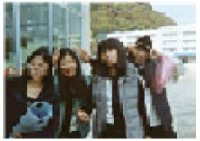Purpose This study is a phenomenological research which tries to describe the subjective experience and to analyze multi-layered meanings, and it finds out the men's training experience and meaning. The purpose of this study is to investigate why the men do Yoga and what the subjective meaning of Yoga experience, and the study examines critically whether Yoga experience especially focused on women is against gender performance and dominant body discourse. Methods For the study, 6 middle & young-old aged men who do Yoga more than 6 months every week are selected as participants. Results The meaning of Yoga for middle & young-old aged men in their lives is as follows. First, it is hard for men to experience Yoga because of social and cultural background. Finding Yoga class which takes men's membership is difficult. Second, middle & young-old aged men's physical feature(interest in their health and disease) and personal background(women friendly daily life) become specific motivation to overcome the barrier to do Yoga. Third, Yoga is 'alterative training', not a training. Yoga is considered as a training which replaces the feature of training called men's sports previously. Fourth, Yoga has a meaning of 'healing' to have our own time. Fifth, Yoga is changed by itself in Yoga culture which is focused on women even though middle & young-old aged men do Yoga for a long time. Sixth, middle & young-old aged men realize that the feature of Yoga is not 'for only women', and they thought it is 'neutral training that men can do too.' Conclusion Consequently, the reason why middle & young-old aged men do Yoga is started from the motivation regarding physical characteristics and personal background, and the main purpose is to cure and to heal our bodies and mind. For them, Yoga means 'alternative training to fit their bodies' and 'their own time'. Moreover, old male adult's training experience and meaning are against gender performance in that it cause a crack in stereotyped gender sports area, but it is notable that there is no intention to resist the dominant gender body discourse.
Purpose The purpose of this study is to investigate gender perception of eSports gamers. Methods 8 male gamers in the professional team were selected purposeful and snowball sampling. Data were collected through face-to-face and online interviews, and analyzed by content analysis and classification analysis. Results Esport gamers explained their indirect experiences with female gamers. The results are as follows. First, it was confirmed that the number of female gamers was small and they had a negative stigma image, and this consistently reproduced the gender role stereotype of female gamers in digital games. Second, in the game world, men are swearing, verbal abuse, and sexual harassment against female gamers, which suggests that female gamers are viewed as targets of sexual play from the perspective of the strongest. Third, eSports male gamers are characterized by being conservative or open to gender perceptions by age. We discussed what to need in eSports which is male dominated area should give to opportunity for equality education. Conclusions In-depth understanding of gender perception in e-sports players should be prioritized in order to change gender perception. Therefore, it would be an important research topic bring to discuss. This paper is expected to be a beneficial material for eSports gender studies and stimulate to discuss gender imbalance.

Recently, there have been diverse types of physical activities supported by government policy in S. Korea. However, these activities may not be effective if they do not reach to moderate to vigorous level. This study designed school physical education system based on SPARK program, which include traditional physical education, sports club based physical activity, after school physical activity, and Saturday physical activity, to evaluate its effectiveness associated with physical fitness and empirical meanings of physical activity. This study employed a mixed method research paradigm for better understanding. Among various mixed method paradigm stances, this study employed "blending strategy" for complementary analysis. First of all, the effectiveness in health condition was evaluated by quantitative data. Specifically, physical fitness and lifestyle were analyzed by Helmas, IPAQ, and Accelerometer respectively. Second, empirical meanings of physical activity were analyzed by both Photovoice and in-depth interview which are qualitative research method. The result of this study first showed that a specially designed school physical activity program based on the SPARK contributed to improve students' physical fitness and lifestyle as well, however, there were important differences between male and female students. Second, physical achievement, alteration of spatiotemporal meaning, and change of societal relationship emerged as important themes. Further, these themes showed that they played an important role to maintain students' motivation in physical activity and consequently physical activity promotion was invigorated in school. Based on these results, we synthesized investment factors and process factors and outcome factors respectively. Finally, we suggested alternative teaching methods and suggestions for following research to overcome gender issues.









